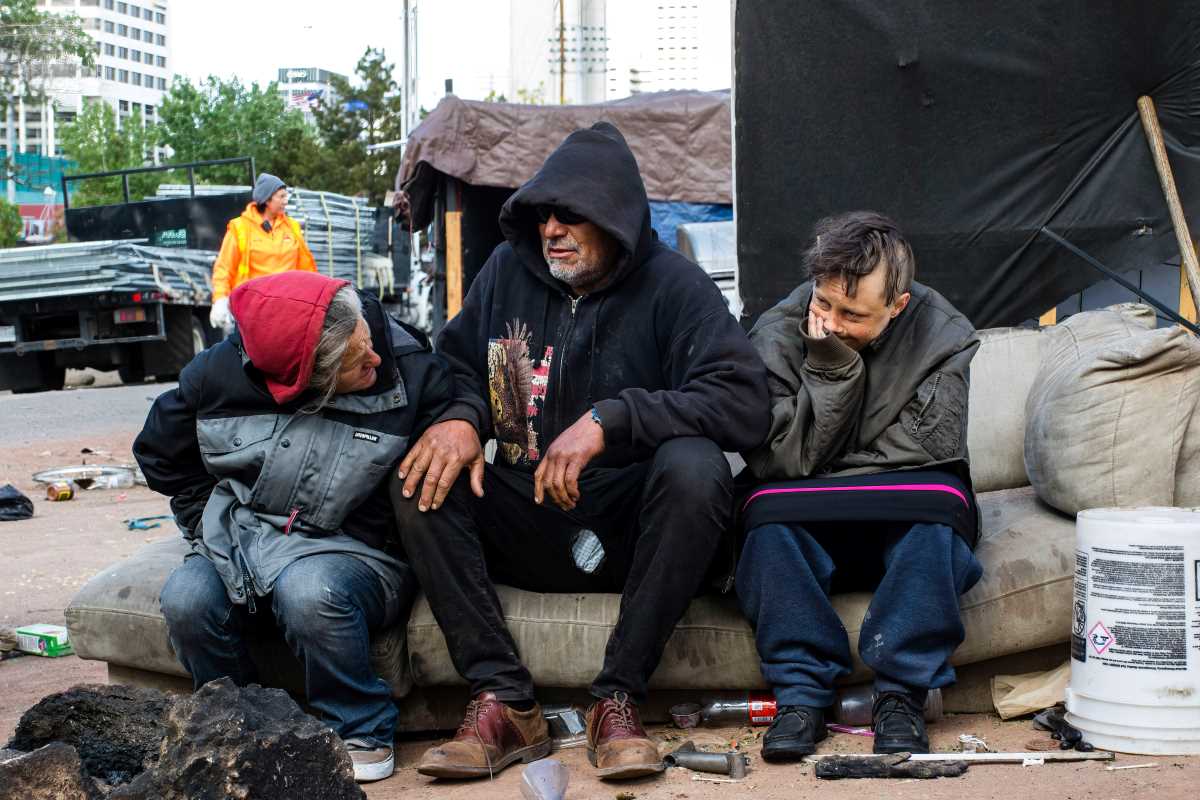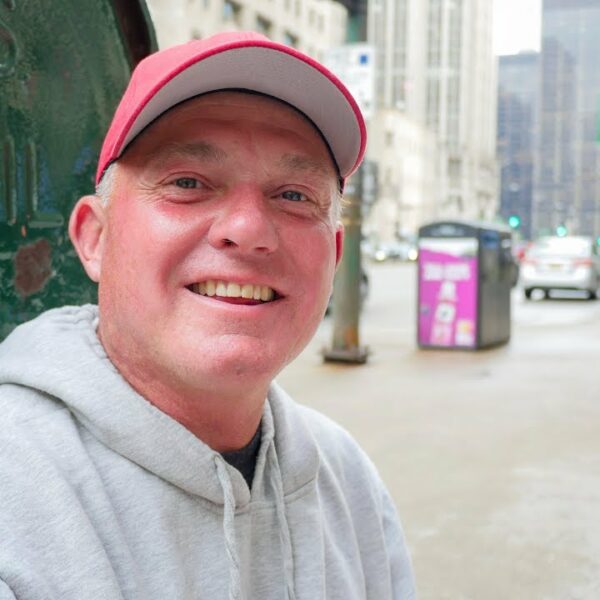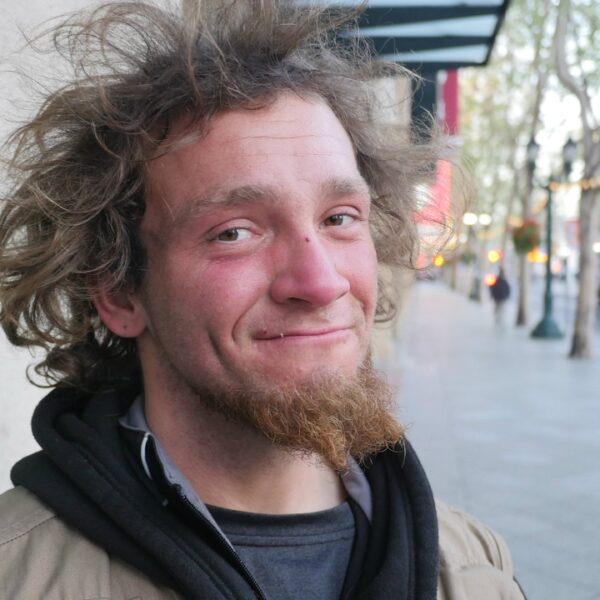Photo Identification Provides Homeless People with Access to Housing, Healthcare, Employment and More
“One of the biggest barriers to homeless people getting Medi-Cal is that they lack documentation like an ID. Photo identification is something that’s frequently lost, stolen, or taken up in sweeps.”
– Director of Street Medicine Brett Feldman explaining the importance of identification. Feldman was a driving force behind Bill AB-369, also known as the Street Medicine Bill, before it was vetoed by Governor Gavin Newsom.
Imagine being in a situation where you are forever moving in survival mode, uncertain of where you will sleep, when you might eat, what you will wear, and how you will make it through another day on the streets.
In this scenario, there is one vital piece of documentation you need to gain access to everything. That piece of documentation is photo identification. This can mean a driver’s license, a non-driver’s license, a student id, or a passport. In brief, it is a government-issued keepsake that tells the world you are who you say you are.
It might appear inconspicuous in your wallet, but its importance will immediately become apparent if you lose it.
Homeless People Need Identification to Access Resources
The resources that people need to escape the horrors of living unhoused can only be provided if proper identification is available. People experiencing homelessness must provide photo identification to obtain:
- Housing
- Healthcare
- Employment
- Financial aid
- Food stamps and so much more
If they cannot provide these vital documents, they will almost certainly be denied the aforementioned resources. This creates a vicious cycle of homelessness and helplessness, denial and destitution.
Applying for a replacement ID is nearly impossible for individuals who do not have a permanent, physical address. Thus, these individuals are at the mercy of the system- the very system that failed them in the first place.
How Homeless People Lose Documents
People experiencing homelessness are often the targets of violent crime. Recent statistics suggest that at least one out of every three homeless people will experience a violent attack personally. Approximately half will be intimidated by the threat of violence.
As such, robbery, either through violence or coercion, is the primary way homeless people lose their passports, driver’s licenses, and other various forms of identification.
Another common event is known as a police sweep. Homeless people residing in encampments are most vulnerable to this action. During sweeps, law enforcement officers not only disassemble the makeshift shelters people are using as homes, but they also often dump all personal belongings in the garbage.
Imagine the heartache of returning “home” to find the shelter you made with your bare hands in shambles. The only archive of your humanity now lies in the bottom of a landfill.
When homeless people lose their license, they lose the last shred of humanity that society recognizes within themselves. Without it, they are nameless drifters doomed to a life without health, housing, or happiness. If they die in this desolate state, they will likely even be buried unnamed. Their legacy will be as if they never happened.
The Fear of Losing Documents Can Sometimes Lead to Losing Even More
While explaining the complex crossroads between healthcare and homelessness, Street Medicine Director Brett Feldman pointed out that the need to produce a valid photo ID to receive medical care was a constant obstacle. According to him, under current legislation, if a homeless person loses their ID, they also lose access to their primary care physician and any prescription refills they may need.
In a bittersweet twist of irony, sometimes the fear of losing these documents, either to sweeps or robbery, keeps them from seeing a doctor anyway. The ever-looming threat keeps them stuck in one place physically and figuratively.
“They can’t move on with their life out of their homelessness because they’re scared all their stuff will be confiscated at the hands of thieves or the authorities,” Feldman said.
This paralyzing fear keeps many homeless community members from visiting doctors, which puts them at an escalated risk for health disparities and premature death. It also keeps them from attending other appointments related to housing, employment, and mental health.
Consequences of Homeless People Losing Vital Documents Affect Everyone
When a homeless person loses their identity to theft or sweeps, nobody wins.
Homeless services lose because they cannot secure housing if the person lacks the necessary paperwork.
The healthcare system loses because they cannot provide outpatient, non-emergency services to individuals without valid identification.
Members of the housed community lose tax dollars. Overcrowded hospitals also plague them as homeless people are forced to filter into emergency rooms because they cannot access primary care.
And the person experiencing homelessness loses again and again. It is a system so cruel it will spit them back out without even acknowledging their name.
Identity is an Important Aspect of Visibility
What’s in a name in 2021?
History and literature speak of a time in the not-so-distant past when wars were waged, and lovers were slain, all over the power of a name. We want to think that today, this sort of surname-based hierarchy does not exist. However, names hold even more power today than ever before.
In the Golden Age of Social Media, your name is your brand. Your digital footprint is your currency. Your license is your business card. If you lose this government title, you essentially cease to exist in the eyes of the public, the eyes of your peers.
Without an identity, you do not get to live your best life like those around you. Instead, you are lucky if you are allowed to exist at all in a public space. This is precisely the point.
When authorities badger a homeless person for performing a life-sustaining activity such as sleeping, what is the first thing the police officer asks for? Name and photo identification – even if the same officer threw that identification in the garbage.
If a citation is issued and this person is forced into the judicial system, what is the first thing they will need to provide during their court appearance? Again, it is photo identification.
Most states will not even allow an individual to enter a district court building without a valid, government-issued identification card. If you can’t represent yourself in a court of law, the legal system cannot support any of your endeavors, and you are immediately robbed of all your rights.
In a cruel twist, losing identification also means losing the right to vote for laws that would work in your favor. Thus, a homeless person lacking vital documents has literally no say in the laws that shape the country. In fact, those laws are likely to be enforced against them.
Thus, someone who loses their identity fades into the background of our social sphere, an invisible person, barely spotted from the corners of our eyes.
Talk to your legislators about fixing the system.
We live in a digital age. If nothing else, this should make the need for physical photo identification obsolete, particularly when it comes to accessing vital, life-sustaining things like healthcare, housing, and employment.
Bill AB-369 would have made it illegal for healthcare providers to deny medical assistance to individuals who do not have photo identification available. If passed, this act could have
saved lives and taxpayer dollars. Instead, the state of California chose to further bankrupt its ever-growing homeless population, robbing these individuals of their rights to health and happiness.
We must do more to create an environment where everyone has access, identity, and visibility. Only when we see homeless people as our neighbors will we be able to solve this crisis.













